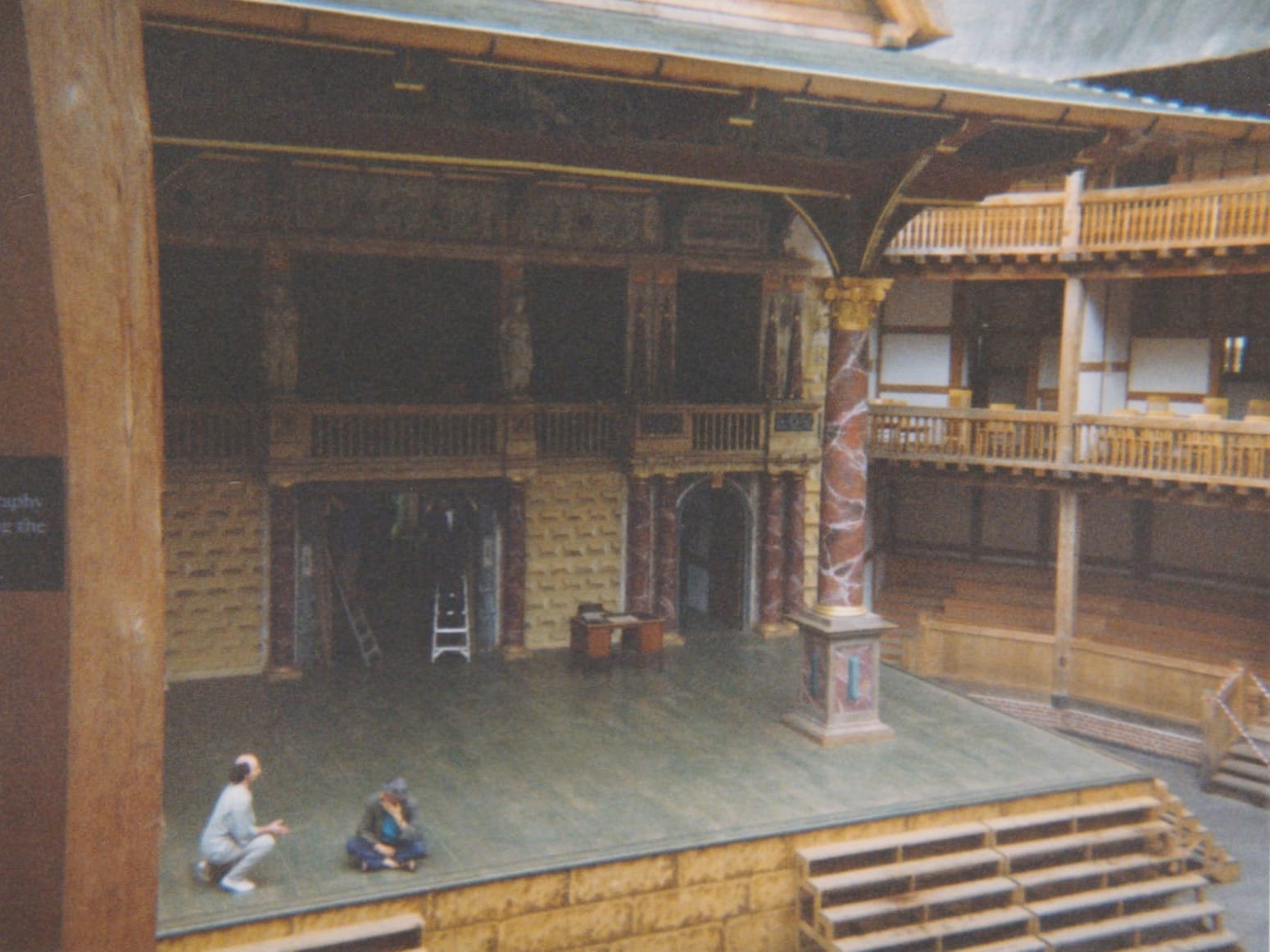The Empty Space
There are more things in heaven and earth, Horatio, than are dreamt of in your philosophy...

We cannot definitively say how theater began, but the "why" is pretty clear. Prehistoric art on walls, pottery, etc, suggests that early versions of ritualistic (or rehearsed) performance had both a religious and entertainment purpose. We can certainly see both elements in some of the oldest theatrical texts, such as Lysistrata from Ancient Greece, and The Mahabharata from Ancient India. These were stories about gods and goddesses that the contemporary audience believed existed, and to varying degrees still worshiped. The performance itself was a form of worship.
Over the centuries, however, those two elements of religion and entertainment divided into different venues. Churches, temples, etc were built to "contain" religion (more on that another time), and by the time of Shakespeare, theater had become "merely" entertainment. The actual worship element had been mostly removed. And that's an important distinction to make. A play can be about Jesus of Nazareth without it actually being a worship of Jesus.
Theater is often a reflection of, or a response to it's time (usually both). So as the world became increasingly secular and mechanized, theater became ever more abstracted from its religious and ritualistic roots. But not entirely separated from them. If you know theater folk, you've probably noticed that many of us dote upon superstition and tradition—the curse of Macbeth, the ghost light, and the prohibition from whistling backstage, just to name a few. So perhaps it isn't completely bizarre to think that along with those other traditions, some ancient pagan rites from a prehistorical era might also be retained.
As I mentioned in my previous post, I discovered startling similarities between the practice of witchcraft found in Starkhawk's Dreaming the Dark, and the visualization exercises I learned while studying acting at Carnegie Mellon University School of Drama. Exercises that I have since been utilizing in my creative writing for the last three decades. Could it really be true that I've essentially been practicing witchcraft all this time without realizing it? And if so, what on earth did that mean?
To help me talk it out, I called one of my oldest and dearest friends, Zach Morris, artistic director and co-founder of Third Rail Projects. Zach and I studied theater together back at CMU, and have collaborated many times over the years. How would he respond to my discovery?
We spoke over the phone one night while he was hurriedly packing for his flight to Denver, where he would direct his latest show, Sweet and Lucky.
"So what you're saying," he began, briefly interrupted by the clatter of a toiletries bag, "is that all this time, we've utilized these techniques—or I guess rituals without knowing their original context?"
"It sure seems like it," I said.
"Well, we've always known that theater, when it's done well, is an act of conjuration. So I guess that makes sense."
So maybe I was on to something?
Next I called my former acting mentor, Ingrid Sonnichsen. Ingrid is one of those battle-hardened grand dames of the theater who's performed, directed, and taught all over the world. Even in semi-retirement, she is full of passion, and feisty as hell. She's also a practicing Christian Scientist, although she was careful not to directly bring her religion or spiritual practice into her teaching. And that's exactly why I wanted to talk to her. I knew there were things she couldn't talk about when I was her student. Now I wanted to know what those things were.
"Well, I don't know shit about witchcraft," she said, "but to answer your question more broadly, of course there's a connection between creativity and spirituality."
"But literally the centers work you taught us our freshman year in acting classes is described almost exactly in this witchcraft book," I pointed out. "How does that happen if you don't know anything about witchcraft?"
"There are more things in heaven and earth, Horatio, than are dreamt of in your philosophy," she drawled.
I groaned. "Now you're quoting Shakespeare at me..."
"In all seriousness, fuck if I know how or why these things line up," she said. "But it sounds like your current working definition of witchcraft is similar to a metaphysical spiritual practice like mine. I've encountered other overlapping metaphysical practices, so I'm not surprised to learn about more. Do all these practices come from a single source? Or is there some underlying truth of existence that they all arrived at separately? I doubt we'll ever truly know."
She's probably right that we'll never know—perhaps can't know. And I've long since learned to be comfortable with a certain amount of mystery. But then I began to wonder, if these highly specific theater visualization exercises line up so well with witchcraft, what else might line up? How many points of convergence can I find between witchcraft and the creative process?
Let's consider this:
Celebrated theater director Peter Brook wrote a book called The Empty Space. In it, he suggestions that all one truly needs to make theater are performers and an empty space. That's it. Sure, sets, lights, costumes, props, and scripts can all be wonderful additions. But ultimately they are not required. Through performance alone, the space is filled, yet infinitely flexible. For a brief time we can be simultaneously in a black box theater in Brooklyn and the battlefields of ancient Troy. When theater is skillfully performed, reality itself seems to become malleable. And subjectively speaking, it is malleable.
So is this what's meant by magic?
Next week: "What I talk about when I talk about magic."
